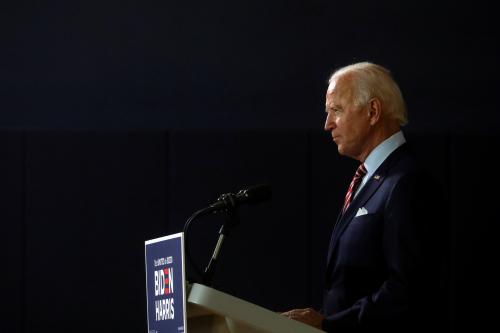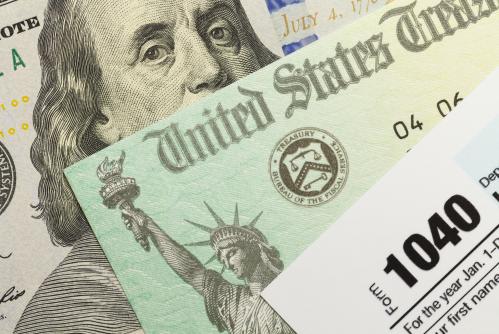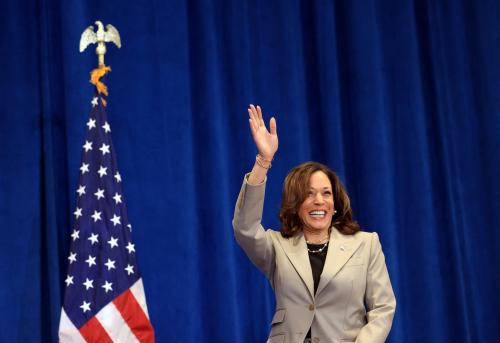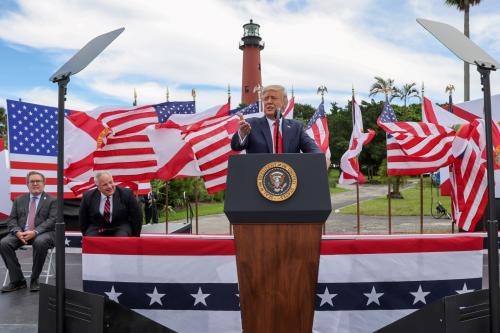The expansion of the Child Tax Credit (CTC) enacted into law as part of the American Rescue Plan should provide major benefits to millions of families, but there’s a catch: people need to be able to receive the money. The COVID-19 pandemic demonstrated that Uncle Sam struggles to get money to families. Stimulus payments were sent out slowly, and despite 95% of American families having a bank account, the Treasury Department sent 70 million paper checks and plastic debit cards. The problem was most severe among low-income individuals, who had to wait longer and were less likely to have the money deposited in their bank account. The CTC payments, which will be sent out in monthly installments through the end of the year, start in only two months. We have precious little time to fix this.
The simplest and smartest fix is to establish universal, low-cost bank accounts. While the unbanked make up only 5% of Americans, this obscures the stark racial disparities. Fourteen percent of Black families and 12% of Latino families are unbanked, compared to just over 2% of white families. Why do people not have bank accounts? The answer is, they are structured to be quite expensive if you are poor.
By a large margin, unbanked households’ main reason for not having an account is the high cost of basic bank accounts. Many banks implement minimum balance requirements, which low-income individuals cannot meet. Overdraft fees disproportionately target the most vulnerable. About one in twelve bank account holders are heavy overdrafters, racking up more than $300 a year in overdraft fees. These fees help subsidize the ‘free checking’ that those with a cash cushion of over $1,000 enjoy. Faced with expensive basic banking, low-income households turn to alternatives like payday loans and check-cashing services. Underserved households spend nearly one-tenth of their annual income on fees and interest from such services, on average. This figure may rise if CTC payments are not distributed smartly: $66 million of the first round of COVID relief payments ended up in the hands of check cashers.
Universal accounts expand access to the financial system and make government payments more effective by eliminating costly fees and delays. The most straightforward solution is to require banks and credit unions to offer low- or no-cost accounts. These institutions are chartered by the government and have a duty to serve their communities. Providing a basic, low-cost account that is accessible to all community members falls within this.
Universal accounts have several key features, including minimal associated fees, no overdraft fees and no minimum balance requirements (an example of an acceptable fee is a low monthly maintenance charge). Universal accounts also include standard services, like mobile banking, online and automatic bill-pay, and savings incentives and tools.
Universal account access is not just a pie in the sky concept. Cities for Financial Empowerment Fund’s Bank On initiative partners with banks and credit unions, creating low-cost, certified accounts. The FDIC Safe Account model is another path to the same goal. The American Bankers Association recently urged all banks to offer Bank On-certified accounts. Congress or federal regulators need to go one step further and require that all banks and credit unions offer these accounts.
Some banks and credit unions will likely push back against this idea, concerned about losing profit. Overdraft fees are a source of pure profit for banks; one bank executive even named his yacht Overdraft. For a few financial institutions, overdrafts constitute the majority of the banks’ profit. That is troubling both for the consumers being targeted and for the regulators who allow it.
Solving the account problem is a vital first step, but it is insufficient. We live in a world where Amazon can get anything to your door in under 48 hours, but it takes Uncle Sam six days to get money into your bank account. Payment instructions for the first round of stimulus checks went out on a Friday, but funds didn’t arrive until Wednesday. That may be fine for those who can afford to wait, but time is money, especially for people living on the edge. The Child Tax Credit is targeted to families closer to that edge.
Demand for payday loans and check-cashing services is driven by this slow payment system. The Federal Reserve has announced a plan to implement real-time payments but does not plan to have it operational until 2023, at the earliest. By then, the entire expanded CTC is scheduled to be over. The Treasury Department does not have to send money through the Fed’s current outdated system. Treasury could send it in real time through the Clearing House’s Real-Time Payments (RTP) Network, which currently reaches 56% of Americans’ bank accounts.
Congress took a bold step requiring monthly payments to 48 million families through the CTC. Giving families who are living at or near the edge monthly payments, as opposed to waiting until tax time, is wise. However, it will not work as intended unless the US Treasury is able to pay people quickly and efficiently. Establishing universal accounts through the existing banking and credit union system, coupled with real-time payments, is the simplest solution. In just two short months, we need to have a system in place to ensure that low-income families are not, once again, left behind. Universal accounts are the solution.
Myrto Karaflos is a Senior Policy Associate at Prosperity Now, a nonprofit organization. Other than the aforementioned, the authors did not receive financial support from any firm or person for this article or from any firm or person with a financial or political interest in this article. They are currently not an officer, director, or board member of any organization with an interest in this article. The views expressed in this piece are those of the authors and do not reflect the position of Brookings or Prosperity Now.








Commentary
Op-edUniversal bank accounts necessary for families to bank on Child Tax Credit
April 29, 2021